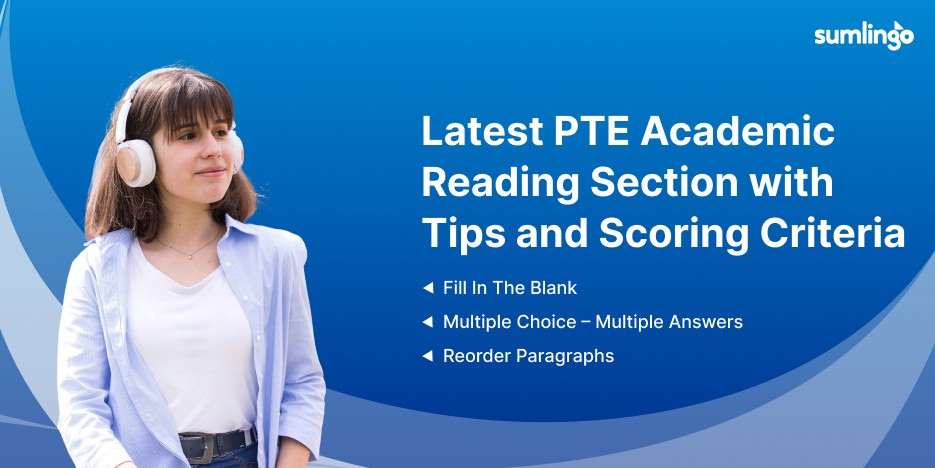The Pearson Test of English Academic (PTE Academic) is one of the most widely accepted English proficiency tests for university admissions, visa applications, and professional certifications worldwide. Its computer-based format and quick results have made it popular among test takers globally. However, despite its growing popularity, there are many myths and misconceptions about the PTE exam that can mislead candidates. To help you prepare effectively and confidently, this blog clears up some of the most common misconceptions about the PTE Academic exam and explains the truths behind them.
Myth 1: Changing the Test Center Affects Your Score:
Many candidates worry that switching their test center or location might affect their scores due to differences in equipment, environment, or staff. This is not true.
Fact: Your score remains the same regardless of the test center location. The exam conditions are controlled to be as similar as possible everywhere. Instead of stressing about the venue, invest your energy in thorough preparation and familiarizing yourself with the test format.
Myth 2: Adding Extra Words in “Write from Dictation” Boosts Your Score:
Some test-takers believe that adding words they think might fit or repeating phrases helps demonstrate better language skills. This is a critical mistake.
Fact: In the Write from Dictation task, you must write exactly what you hear, no more, no less. Adding extra words can reduce your scores in both the Listening and Writing sections because the scoring algorithm looks for precise accuracy.
Are you ready to test your skills?
Myth 3: You Must Speak Loudly to Score Well in Speaking:
It’s a common misconception that raising your voice makes your responses clearer for the AI scoring system or examiners.
Fact: Volume is irrelevant to your speaking score. What matters most is clarity, correct pronunciation, fluency, and intonation. Speaking in a natural, clear, and steady tone is the best approach. Shouting or speaking too loudly can distort your voice or create unnatural speech patterns, potentially harming your score.
Myth 4: Guessing in Multiple Choice Questions Won’t Hurt Your Score:
While guessing may seem harmless in some tests, in PTE, it can sometimes negatively impact your score.
Fact: Some multiple-choice questions include negative marking for wrong answers. Random guessing may reduce your overall score if you frequently pick incorrect options. Instead, use the process of elimination to make informed guesses.
Myth 5: Writing Longer Essays Leads to Higher Marks:
Many candidates believe that writing more words in the essay task will impress the examiners and earn them more points.
Fact: Quality always beats quantity. The essay should be clear, well-organized, and relevant to the prompt. Writing longer than the recommended word count may lead to irrelevant content, grammatical errors, or loss of focus, which lowers your score. Test takers should aim for around 200-300 words that are well-structured with an introduction, body paragraphs, and a conclusion.
Myth 6: Using the Backspace Key Affects Your Score:
Some students worry that editing their answers using the backspace key will hurt their score.
Fact: The scoring system does not penalize backspace usage. However, overusing the backspace wastes valuable time during the exam. Typing smartly, planning what to write before typing, and proofreading will help you manage your time better.
Myth 7: Leaving Difficult Questions Blank Is Better Than Guessing:
Many test-takers think skipping tough questions will protect their score from wrong answers.
Fact: Leaving questions unanswered can reduce your chances of scoring higher. The PTE exam rewards attempts, and guessing intelligently can sometimes add points, especially when you eliminate wrong answers first. Never leave questions blank unless you have no idea at all, and even then, an educated guess is preferable.
Myth 8: Skipping Hard Words in Read Aloud Doesn’t Matter:
Some candidates skip difficult words during the Read Aloud section, hoping it won’t affect their score.
Fact: Every word matters. Skipping or mispronouncing words disrupts the fluency and content of your response, which negatively impacts your speaking and reading scores. Even if you’re unsure of a word’s pronunciation, make your best attempt instead of skipping it completely.
Myth 9: You Need a British or American Accent to Score Well:
Non-native speakers often worry that their accent will hold them back in the speaking section.
Fact: The PTE scoring system values clear and intelligible speech over any particular accent. You don’t have to mimic a British or American accent. Focus on pronouncing words, maintaining fluency, and using correct intonation to communicate effectively.
Are you ready to test your skills?
Myth 10: Speaking Faster Means Higher Marks:
Some candidates think speaking quickly will show fluency and earn more points.
Fact: Speed without clarity is counterproductive. Fluency means speaking smoothly and naturally, not rushing through words. Speaking too fast can lead to mispronunciations or dropped words, hurting your score. Maintain a balanced pace that allows clear articulation.
Myth 11: Using Complex Vocabulary Always Boosts Your Score:
There’s a misconception that using big or fancy words will impress the AI scoring system.
Fact: Vocabulary matters only when it is used correctly and in context. Using overly complex or unfamiliar words incorrectly can reduce your score. It’s better to use simple, precise language that fits the context and conveys your ideas.
You can avoid making mistakes and focus on what works for the PTE Academic exam by understanding the truth behind these common myths. This will help the test takers to prepare better, feel less stressed, and be more confident on exam day.










